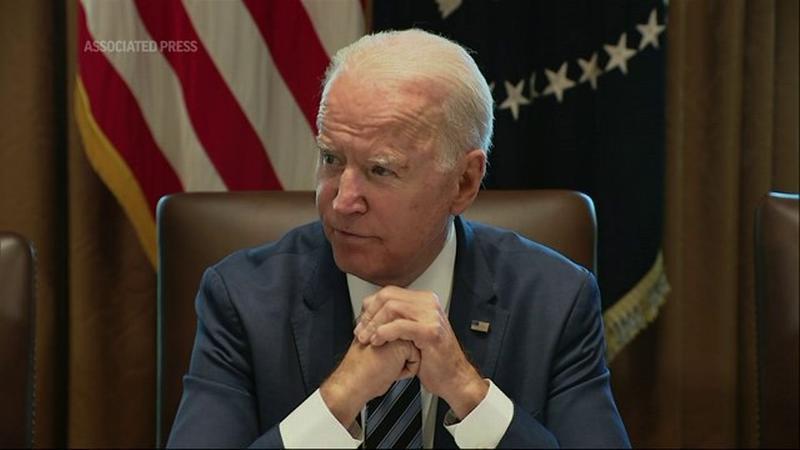Biden administration plans to finish mining study, moves towards withdrawal of land
[anvplayer video=”5064856″ station=”998130″]
In a move similar to the Obama administration, the Biden administration announced big developments about mining and the BWCA.
The administration is initiating consideration of a 20-year withdrawal of key portions of the national forest lands from disposition under the mineral and geothermal leasing laws, which would temporarily prohibit the issuance of new prospecting permits and leases in the area.
The Forest Service submitted the withdrawal application to the Bureau of Land Management (BLM), which manages the subsurface rights in the Superior National Forest.
The BLM’s acceptance of the application and publication of a notice in the Federal Register will initiate a two-year segregation that will prohibit the issuance of new Federal mineral leases within 225,378 acres within the Rainy River Watershed.
During this time, the BLM and the Forest Service will seek public comment and conduct a science-based environmental analysis to evaluate the potential impacts of mining on the important natural and cultural resources of the Rainy River Watershed.

Biden administration makes announcement about minerals near the BWCA.[AP Video]
The two-year segregation of lands initiated by Wednesday’s announcement in the Federal Register prohibits the issuance of new prospecting permits or leases for mining related activities but does not affect valid existing rights or activities on private lands.
Separately, there are two leases within the proposed withdrawal area associated with the proposed Twin Metals Mine that are currently in litigation.
Publication of the Federal Register notice will also initiate a 90-day public review period for the proposed withdrawal and additional analysis during the segregation period that will include Tribal consultation and further public involvement, including public meetings. This process will invite participation by the public, Tribes, state and local government, as well as other stakeholders interested in the stewardship of these lands and waters. The Secretary of the Interior has the authority to withdraw lands for a maximum of 20 years, subject to renewal; only Congress can legislate a permanent withdrawal.
In 2016, the Obama administration initiated steps to withdraw portions of the watershed from new mineral permits and leases. In 2018, the Trump administration canceled the Forest Service’s withdrawal application and the associated environmental review after three public meetings already had been conducted, more than 90,000 public comments collected, and environmental analyses undertaken.
Responsible development of domestic mineral supplies is important to transitioning to a clean energy economy. The study and two-year segregation from new mineral leasing will give USDA and DOI the opportunity to fully support science-based decision-making in the Rainy River waters.
Twin Metals issued a statement:
“Twin Metals Minnesota is deeply disappointed with the federal government’s action to initiate a mineral withdrawal study yet again on nearly 230,000 acres of land in northeast Minnesota, which sits on top of the world’s largest known undeveloped copper-nickel deposit. We are working to determine the best path forward to continue advancing our proposed world-class underground copper, nickel, cobalt and platinum group metals mine.
We are firmly dedicated to the communities of northeast Minnesota and to advancing a sustainable mining project that will bring much-needed economic growth to our region, in addition to the opportunity to responsibly develop the critical minerals needed for our global efforts in combatting the climate crisis. Twin Metals’ mineral rights span 11 presidential administrations, and we remain steadfast in upholding those rights and advancing our model mining project.”
Groups part of the Save the Boundary Waters Campaign are calling it a win.
Jason Zabokrtsky, owner of Ely Outfitting Company, said in a statement, "The Boundary Waters is an economic engine that supports wilderness edge communities. Protecting this national treasure from risky copper mining is vital to the local communities and regional economies that depend on clean water, healthy forest, and a pristine Boundary Waters Wilderness."
Dave and Nancy Seaton, from Hungry Jack Outfitters, added, "Clean water is more valuable than copper. Healthy forests are more valuable than nickel. Accessible wilderness is more valuable to the world’s citizens than corporate profit. Last I checked, they aren’t making any more wilderness."
Congressman Stauber also sent a statement. It says, in part, "Quite simply, President Biden is putting politics over science. Nearly a year ago, candidate Joe Biden pledged to support Minnesota’s miners in their mission to obtain good-paying mining jobs, bring economic prosperity to a region that desperately needs it, and secure America’s critical mineral supply chain. Joe Biden has officially failed to uphold this promise."
The International Union of Operating Engineers Local 49 sent this: "Today’s announcement by the Biden Administration to initiate yet another mineral withdrawal study is a disheartening blow to job creation on the Iron Range and casts doubt on the seriousness of our nation’s commitment to a green energy economy. There is a broad agreement that we need to be moving toward renewable energy production and getting more electric vehicles on our roads to combat the effects of a changing climate. There is tremendous opportunity for job creation in this transition, both in the production of new energy infrastructure and the manufacturing of batteries and parts needed to build that infrastructure. We cannot reach the full benefits of the economic opportunity of this transition if the metals in Northern Minnesota stay in the ground."